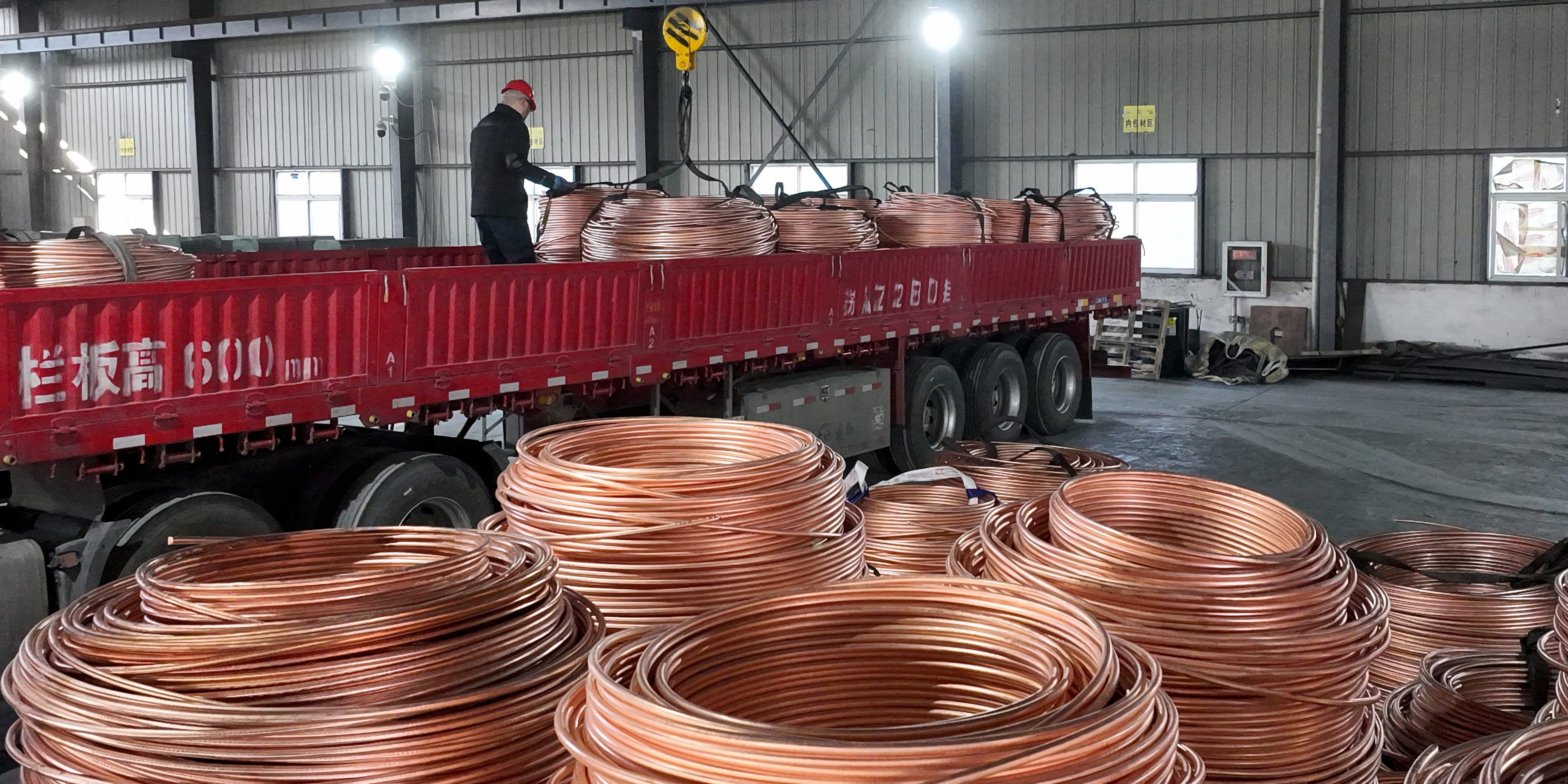Copper could climb as high as $12,000 per metric ton in the next year, Trafigura said. That represents a 33% jump from the current price of about $9,000. “What’s the price of something the whole world needs but we don’t have any of?” Loading Something is loading.
Thanks for signing up!
Access your favorite topics in a personalized feed while you’re on the go.
Copper prices could spike over the coming year as growing demand from China puts stress on already-thin inventories, according to top metal trader Trafigura.
The economic-bellwether commodity currently trades at around $9,000 per metric ton and will likely top the record of $10,845 to potentially go as high as $12,000, said Kostas Bintas, co-head of metals and minerals at Trafigura, at the FT Commodity Global Summit.
“I think it’s very likely in the next 12 months that we will see a new high,” he said, according to the Financial Times. “What’s the price of something the whole world needs but we don’t have any of?”
An essential commodity that is used in everything from construction to electric vehicle manufacturing, stockpiles came under pressure as China began to reopen its economy after ending its zero-COVID policies at the tailend of 2022.
Inventories are now at the lowest seasonal level since 2008, helping copper prices rise 6% this year to become the best-performing industrial metal.
Demand for copper jumped 13% last month from a year ago, and prices could reach $15,000 by 2025, Goldman Sachs has said.
Inventory declines have also been accelerated by the growing turn towards green economies, as copper is an essential component in renewable-energy technology.
Despite this, developing new mining sites is becoming more difficult. In its best-case scenario, S&P Global predicts that by 2035, the world will be lacking 1.6 million tons in needed copper.
